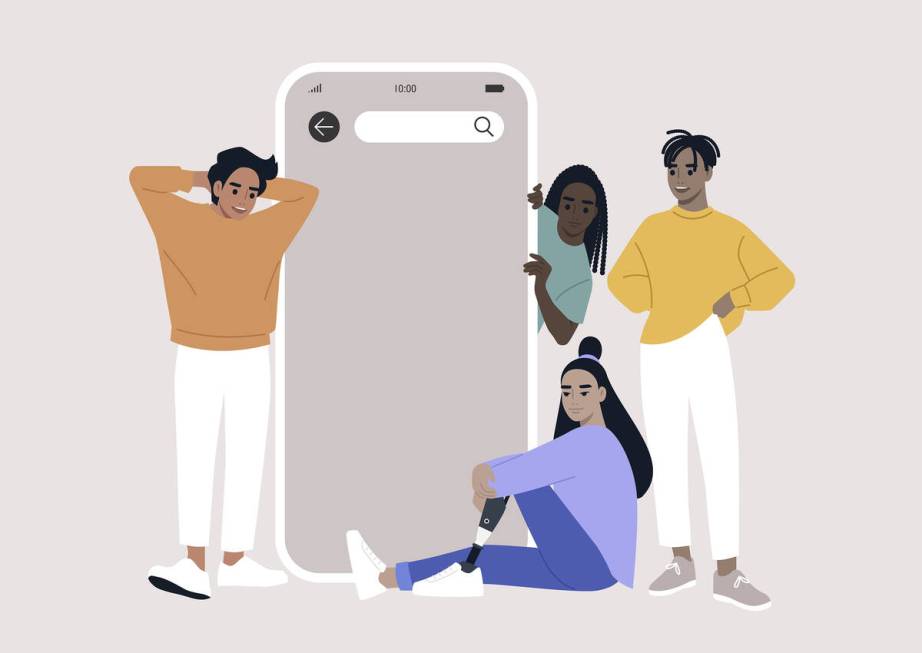RUBEN NAVARRETTE JR.: Don’t sleep on Generation Z — they’re worth listening to

Lately, I’ve spent a lot of time around the members of so-called Generation Z. It doesn’t hurt that my wife and I are parenting three of them.
Over the past 12 months, I’ve spoken at four colleges or universities around the country and taken questions from students; put on a three-day “journalist in residence” experience at California State University, Fresno, for students majoring in journalism; spoken to high school students in Central California to prepare for a young storyteller clinic I’m conducting this summer; accompanied 40 high school students on a weeklong tour of Ivy League universities; and served as an adviser and mentor to Our National Conversation, a nonprofit teaching college students how to create fresh digital media content.
For some time, I’ve been curious about the inner workings of Generation Z, whose members were — like my three teenagers — born between 1997 and 2012.
But I wonder: Are others equally curious or ready to write them off? I’ve encountered both reactions.
Managers at companies and organizations — from both Generation X and the baby boom — complain the young people they supervise don’t work hard enough, don’t take initiative and don’t speak up in meetings. It also strikes older Americans as strange that many members of this younger generation seem to feel they have to agree with the “values” of any company or organization they work for.
Generations are bound to have conflicts with one another. It’s the way of the world. The self-reverential baby boomers — who, during the Vietnam War, warned against trusting “anyone over 30” — have been bad-mouthing Generation X since the 1990s. Many of us stopped caring before the decade ended.
I’ve been writing about the generations for three decades. And in 1994, I co-hosted a nightly radio show in Los Angeles aimed at Generation X.
Take it from me. There is much to be learned from observing, studying, conversing with and — most importantly — listening to the members of Generation Z. Despite some initial skepticism, I came away impressed with this cohort.
There are big things happening in this country that seem to be centered on Gen Z.
In the winter, young people began the year eager to make their voices heard on abortion and gun restrictions. In the spring, thousands of college students staged protests on the campuses of more than 150 universities to voice opposition to U.S. support of Israel. In the summer, many of those protesters may descend on Chicago, where the Democratic National Convention is to be held. And in the fall, young voters are poised to shake up the presidential race by shunning a binary choice between President Joe Biden and former President Donald Trump and voting for a third-party candidate.
In a recent poll by The New York Times, Siena College and the Philadelphia Inquirer in six battleground states, 18 percent of registered voters under 30 voiced support for independent presidential candidate Robert F. Kennedy Jr. Across all age groups, 10 percent supported Kennedy.
Meanwhile, it turns out I’m not the only one checking to see if the kids are all right. Also on the case is one of the nation’s premier experts on the generations.
I’ve been reading and listening to — and learning from — Jean Twenge for more than 20 years. The California State University, San Diego, psychology professor is the author, most recently, of “Generations: The Real Differences between Gen Z, Millennials, Gen X, boomers, and Silents — and What They Mean for America’s Future.”
Like me, Twenge is also a Gen Xer raising three Gen Z teenagers. According to her, young people today are less independent than earlier generations.
“Gen Z teenagers are a lot less likely to have their driver’s licenses, to go out on dates, to go out without their parents,” she said. “They are also less likely to drink alcohol and have sex. Parents are pretty thrilled with that. So it’s not necessarily all good or all bad. But they are taking longer to grow up. They just do those adult things later.”
Twenge believes that getting a read on Gen Z might be challenging.
“Gen Z speaks this whole language that Gen X and boomers don’t understand,” she said. “Some Millennials don’t even understand it. They really are so different.”
As Twenge notes in her book, this is above all a generation eager to change the world and desperate to be heard.
Well, Zers, mission accomplished. You have the attention of your fellow Americans. We’re listening. Now what do you want to say?
Ruben Navarrette’s email address is crimscribe@icloud.com. His podcast, “Ruben in the Center,” is available through every podcast app.